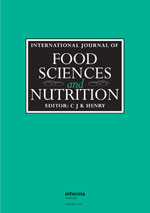Nutravigilance: principles and practices to enhance adverse event reporting in the dietary supplement and natural products industry
 Nutravigilance is defined as “the science and activities relating to the detection, assessment, understanding and prevention of adverse effects related to the use of a food, dietary supplement, or medical food”. The nutravigilance approach is derived from well-defined principles of pharmacovigilance in the drug and biologics industries, which have been developed and refined over a number of years through expert recommendations. While the primary purpose of nutravigilance is to protect customer/patient safety, it also serves to reduce product liability risks for manufacturers and marketing agents of such products. Compliance with the current FDA adverse event reporting requirements is suboptimal, and FDA oversight and enforcement activities have recently increased. In order to better protect customer and product safety, dietary supplement manufacturers must significantly change their current approach, and demonstrate a proactive, systematic, risk-based, scientific approach to product safety, similar to one utilized successfully in the pharmaceutical industry. While this article focuses on FDA regulations, the principles are widely relevant to the supplement industry in the rest of the world.
Nutravigilance is defined as “the science and activities relating to the detection, assessment, understanding and prevention of adverse effects related to the use of a food, dietary supplement, or medical food”. The nutravigilance approach is derived from well-defined principles of pharmacovigilance in the drug and biologics industries, which have been developed and refined over a number of years through expert recommendations. While the primary purpose of nutravigilance is to protect customer/patient safety, it also serves to reduce product liability risks for manufacturers and marketing agents of such products. Compliance with the current FDA adverse event reporting requirements is suboptimal, and FDA oversight and enforcement activities have recently increased. In order to better protect customer and product safety, dietary supplement manufacturers must significantly change their current approach, and demonstrate a proactive, systematic, risk-based, scientific approach to product safety, similar to one utilized successfully in the pharmaceutical industry. While this article focuses on FDA regulations, the principles are widely relevant to the supplement industry in the rest of the world.



